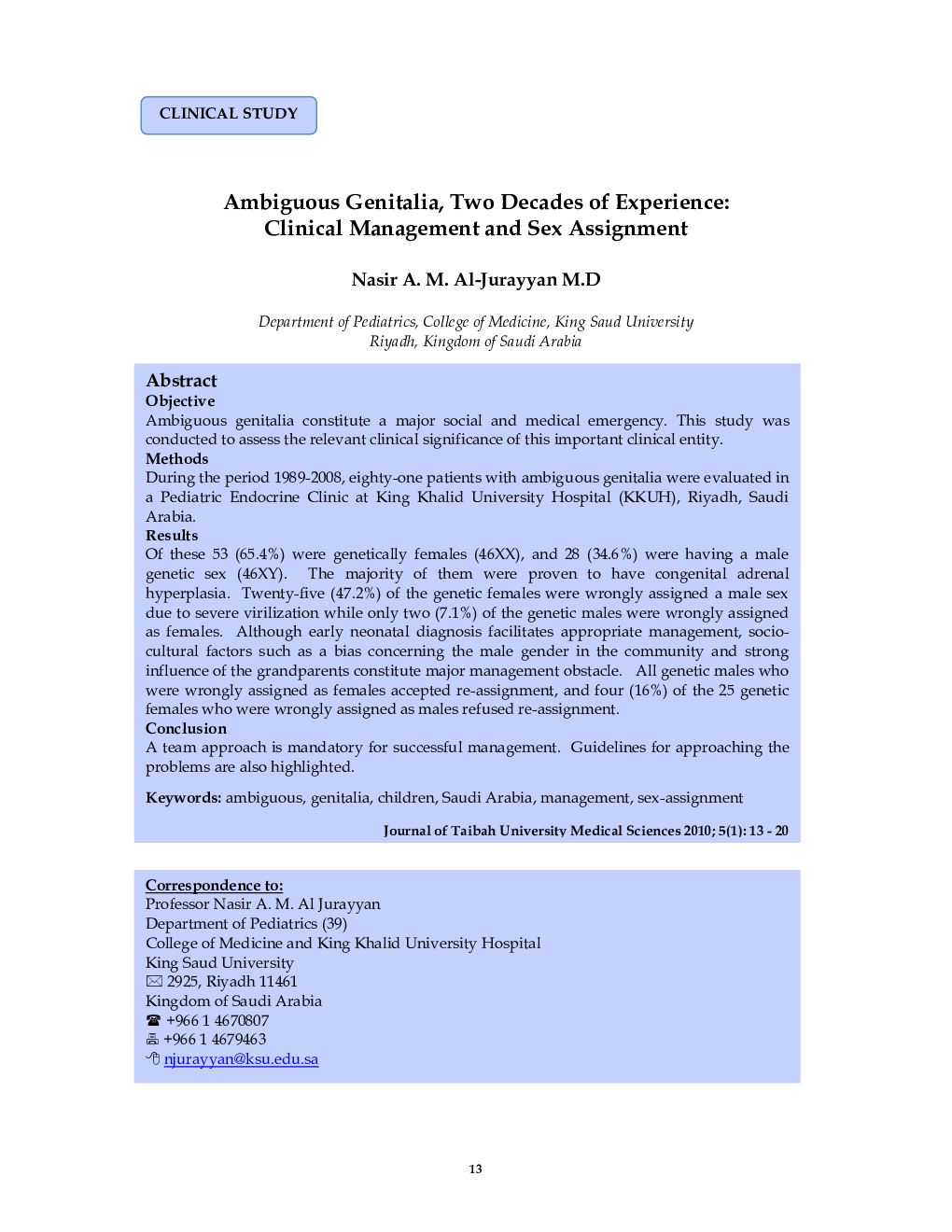| Article ID | Journal | Published Year | Pages | File Type |
|---|---|---|---|---|
| 3484618 | Journal of Taibah University Medical Sciences | 2010 | 8 Pages |
ObjectiveAmbiguous genitalia constitute a major social and medical emergency. This study was conducted to assess the relevant clinical significance of this important clinical entity.MethodsDuring the period 1989-2008, eighty-one patients with ambiguous genitalia were evaluated in a Pediatric Endocrine Clinic at King Khalid University Hospital (KKUH), Riyadh, Saudi Arabia.ResultsOf these 53 (65.4%) were genetically females (46XX), and 28 (34.6%) were having a male genetic sex (46XY). The majority of them were proven to have congenital adrenal hyperplasia. Twenty-five (47.2%) of the genetic females were wrongly assigned a male sex due to severe virilization while only two (7.1%) of the genetic males were wrongly assigned as females. Although early neonatal diagnosis facilitates appropriate management, sociocultural factors such as a bias concerning the male gender in the community and strong influence of the grandparents constitute major management obstacle. All genetic males who were wrongly assigned as females accepted re-assignment, and four (16%) of the 25 genetic females who were wrongly assigned as males refused re-assignment.ConclusionA team approach is mandatory for successful management. Guidelines for approaching the problems are also highlighted.
